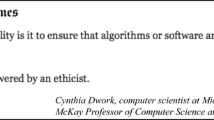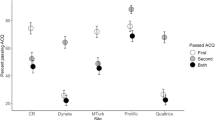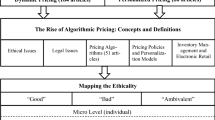Abstract
There is no lack of criticisms frequently levelled against the international pharmaceutical industry (Big Pharma): excessive profits, dubious or even dishonest practices, exploiting the sick and selective use of research data. Neither is there a shortage of examples used to support such opinions. A recent book by Brody (Hooked: Ethics, the Medical Profession and the Pharmaceutical Industry, 2008) provides a précis of the main areas of criticism, adopting a twofold strategy: (1) An assumption that the special nature and human need for pharmaceutical medicines requires that such products should not be treated like other commodities and (2) A multilevel descriptive approach that facilitates an ethical analysis of relationships and practices. At the same time, Brody is fully aware of the nature of the fundamental dilemma: the apparent addiction to (and denial of) the widespread availability of gifts and financial support for conferences etc., but recognises that ‘Remove the industry and its products, and a considerable portion of scientific medicine’s power to help the patient vanishes’ (Brody 2008, p. 5). The paper explores some of the relevant issues, and argues that despite the identified shortcomings and a need for rigorous and perhaps enhanced regulation, and realistic price control, the commercially competitive pharmaceutical industry remains the best option for developing safer and more effective medicinal treatments. At the same time, adoption of a broader ethical basis for the industry’s activities, such as a triple bottom line policy, would register an important move in the right direction and go some way toward answering critics.
Similar content being viewed by others
Notes
I use the terms medicine or its plural form medicines or drug or pharmaceuticals variously to denote a proprietary therapeutic product.
Congressional Budget Office of the United States, CBO Study, Research and Development in the Pharmaceutical Industry 2006, p. 23.
See: Dawber (2010). OFT fines Reckitt £10m for Gaviscon market abuse. The Independent, October 16.
‘Giant takes up fight against rare diseases'. The Times, October 19, 2010, p. 48.
An Inquiry into the Nature and Causes of the Wealth of Nations, Book IV, chapter II, p. 184—Edinburgh 1827.
For further discussion, particularly on the pricing and distribution of pharmaceuticals see Buckley and Ó Tuama (2005).
For a discussion on Daniel’s justification of the special nature of health care, see Segall (2007). In particular, Segall points out that justifying the specialness of health care on the basis of opportunities to pursue life plans fails to account for medical treatment of the elderly. Larmore (1999) gives a fuller account of the notion of life plans.
See also Arrow (1963, p. 941): “The causal factors in health are many, and the provision of medical care is only one. Particularly at low levels of income, other commodities such as nutrition, shelter, clothing, and sanitation may be more significant”.
Adopted by UN General Assembly Resolution 217A (III) of 10 December 1948 (added italic).
O’Neill attributes the phase manifesto rights to Feinberg’s (1980).
For a discussion of O’Neill’s account of rights and obligations and a rethink on duties imposed by human rights, see Ashford (2006).
Grossman and Lai (2008, p. 399) indicate: “Many countries impose price controls on pharmaceutical products to hold down the cost of medicine to national health plans and local consumers. Such controls have generated sizable differences in the prices of similar drugs in different countries. The price gaps in turn create incentives for arbitrage in the form of “reimportation” or parallel trade. Current trade rules leave the legality of such trade in the hands of the importing country. In many of these countries, the question as to whether intellectual property rights should be exhausted nationally or internationally has been highly controversial. Consumer advocates argue for parallel importation as a means to temper monopoly pricing, whereas the pharmaceutical lobby points to the adverse effects of price controls on the returns to research. By allowing parallel imports, they claim, a country would import its trade partner’s price controls and thereby undermine intellectual property and dampen incentives for innovation”.
In the UK, the term ethical is often used to denote prescription medicines.
Angell (2004, pp. 115–135) bluntly refers to ‘food, flattery, and friendship’.
The edition of the code currently in force is 2008. www.abpi.org.uk Accessed October 2010.
Available from: http://humanethics.prod2.imcms.net. I am grateful to Professor Henk Ten Have for making me aware of the Novo Nordisk initiatives.
The author is appreciative of the comments of the 2 anonymous referees all of which have been carefully considered, but not all resulted in amendment of the text.
A new Health and Social Care Bill is being progressed in the UK. In a letter to the editor of The Times newspaper (19 October 2011), Professor Geraldine Van Bueren (a commissioner for the UK Equality and Human Rights Commission) indicates that the bill ‘ought to incorporate the basic principle that everyone has the right to the highest standard of attainable physical and mental health, which government is under a progressive duty to provide, according to the maximum of its available resources’.
Original quotation by Sir Winston Churchill, British politician and Prime Minister, ‘Many forms of Government have been tried, and will be tried in this world of sin and woe. No one pretends that democracy is perfect or all-wise. Indeed, it has been said that democracy is the worst form of government except all those other forms that have been tried from time to time’. Hansard, November 11, 1947 British politician (1874–1965).
References
Adams, C.P., and V.V. Brantner. 2010. Spending on new drug development. Health Economics 19(2): 130–141.
Angell, M. 2004. The truth about the drug companies. How they deceive us and what to do about it. New York: Random House.
Arrow, K. 1963. Uncertainty and the welfare economics of medical care. The American Economic Review LIII 5: 941–973.
Ashford, E. 2006. the inadequacy of our traditional conception of the duties imposed by human rights. Canadian Journal of Law and Jurisprudence XIX 2: 217–235.
Baker, D. 2009. Free market myth. Boston Review January/February (online edition). Downloaded from : http://bostonreview.net July 2009.
Brennan, R., L. Eagle, and D. Rice. 2010. Medicalization and marketing. Journal of Macromarketing 30(1): 8–22.
Brody, H. 2005. The company we keep: Why physicians should refuse to see pharmaceutical representatives. Annals of Family Medicine 3(1): 82–85.
Brody, H. 2008. Hooked: Ethics, the medical profession and the pharmaceutical industry (Pbk.) Lanham, Maryland, USA: Rowman, & Littlefield Publishing, Inc.
Brown, H. 2004. Miracle cure meets medical reality. The Lancet 364: 1747–1748.
Buckley, J., and S.Ó. Tuama. 2005. International pricing and distribution of therapeutic pharmaceuticals: An ethical minefield. Business Ethics: A European Review 14(2): 127–141.
Burke, E. 1984. Reflections on the revolution in France, Conor Cruise O’Brien, ed. London: Penguin Books, 1984), pp. 151–152. Quoted in O’Neill (2005).
Canguilhem, G. 1991. The normal and the pathological. New York: Zone Books.
Chang, P.L. 2006. Who’s in the business of saving lives? Journal of Medicine and Philosophy 31: 465–482.
Ciulla, J.B. 2007. The importance of leadership in shaping business values, chapter 6 In Corporate Ethics and Corporate Governance, eds. Zimmerli, W.C., K. Richter and M. Holzinger. Berlin: Springer.
Civan, A. and B. Köksal. 2010. The effect of newer drugs on health spending: Do they really increase the costs? Health Economics 19(5): 581–595.
Cosans, C. 2009. Does Milton Friedman support a vigorous business ethics? Journal of Business Ethics 87: 391–399.
Daniels, N. 2004. Justice, health and healthcare, chapter 1. In Health care policy, Shannon, T., ed. Oxford UK: Rowan and Littlefield Publishers Inc.
Dworkin, R. 1993. Justice in the distribution of health care. McGill Law Journal 38(4): 883–898.
Elkington, J. 1997. Cannibals with forks: the triple bottom line of 21st Century Business. Oxford: Capstone Publishers.
Feinberg, J. 1980. Rights, justice and the bounds of liberty: Essays in social philosophy. Princeton: Princeton University Press.
Finegold, D., P. Singer, A. Daar, C. Bensimon, M. Eaton, B. Godard, B. Knoppers, and J. Mackie. 2005. Bioindustry ethics. London: Elsevier Academic Press.
Finegold, D., and A. Moser. 2006. Ethical decision-making in bioscience firms. Nature Biotechnology 24(3): 285–290.
Fitzpatrick, M. 2006. Big Pharma—paper tiger. British Journal of General Practice 56(525): 309.
Fox, N.J., and J. Ward. 2008. Pharma in the bedroom …and the kitchen…. The pharmaceuticalisation of daily life. Sociology of Health & Illness 30(6): 856–868.
Goldman, A.H. 1980. Business ethics: Profits, utilities, and moral rights. Philosophy & Public Affairs 9(3): 260–286.
Goldman, M. 2003. Pharmafocus. Downloaded from: www.inpharm.co./new/infernal-focus.
Grabowski, H. 2004. Are the economics of pharmaceutical research and development changing? Productivity, patents and political pressures. Pharmacoeconomics 22(Suppl. 2): 15–24.
Gray, J. 2008. It depends, pp. 8–11. In Does the free market corrode moral character? Thirteen views on the question. Pennsylvania: John Templeton Foundation.
Grossman, G.M., and E.L.-C. Lai. 2008. Parallel imports and price controls. RAND Journal of Economics 39(2): 378–402.
Henry, D., and J. Lexchin. 2002. The pharmaceutical industry as a medicines provider. The Lancet 360: 1590–1594.
Hevey, R. and C-C. Ling. 2012. Global financial challenges: Opportunities for strengthening R&D research in targeted drug delivery. Future Medicinal Chemistry 4(1): 1–5.
Huber, P. 2006. Of pills and profits: In defense of Big Pharma. Commentary. Manhattan Institute for Policy Research. Downloaded October 2010, from: www.manhattan-institute.org.
Humber, J.W., and R.F. Almeder (eds.). 1997. What is disease? Totowa: Humana Press.
Jack, A. 2008. Balancing Big Pharma’s books. British Medical Journal 336: 418–419.
Kassirer, J. 2005. On the take. How medicine’s complicity with big business can endanger your health. New York: Oxford University Press.
Kola, I. 2008. The state of innovation in drug development. Clinical Pharmacology & Therapeutics 83(2): 227–228.
Kola, I., and J. Landis. 2004. Can the pharmaceutical industry reduce attrition rates? Nature Reviews 3: 711–715.
Lane, C. 2007. Shyness: how normal behavior became a sickness. New Haven: Yale University Press.
Larmore, C. 1999. The idea of a life plan. Social Philosophy & Policy 16(1): 96–112.
Larrère, C. 2010. Ethics and nanotechnology: The issue of perfectionism. HYLE- International Journal for Philosophy of Chemistry 16(1): 19–30.
Lévy, B-H. 2008. Certainly. Or does it? pp. 28–30, In Does the free market corrode moral character? Thirteen views on the question. Pennsylvania: John Templeton Foundation.
MacIntyre, A. 1999. Social structures and their threats to moral agency. Philosophy 74(3): 311–329.
Markle, G., J. Petersen, and M. Wagenfeld. 1978. Notes from the cancer underground: Participation in the laetrile movement. Social Science & Medicine 12: 31–37.
Marco, C., J. Moskop, R. Solomon, J. Gelderman, and G. Larkin. 2006. Gifts to physicians from the pharmaceutical industry: An ethical analysis. Annals of Emergency Medicine 48(5): 513–520.
Mintzes, B. 2006. Disease mongering in drug promotion: Do governments have a regulatory role? PLoS Med 3(4): e198.
Mittra, J. 2005. Pharmaceutical industries: Do they prefer treatment to cure? The Biochemist 27(3): 32–34.
Moynihan, R., I. Heath, and D. Henry. 2002. Selling sickness: The pharmaceutical industry and disease mongering. British Medical Journal 324: 886–891.
Mullin, R. 2003. Drug development costs about $1.7 billion. Chemical Engineering News 81:8.
Nordenfelt, L. 1993. On the relevance and importance of the notion of disease. Theoretical medicine and Bioethics 14(1): 15–26.
Nordenfelt, L. 2007. The concepts of health and illness revisited. Medicine, Healthcare and Philosophy 10: 5–10.
O’Neill, O. 1988. Children’s rights and children’s lives. Ethics 98(3): 445–463.
O’Neill, O. 1996. Towards justice and virtue: A constructive account of practical reasoning. Cambridge: Cambridge University Press.
O’Neill, O. 2005. The dark side of human rights. International Affairs 81: 427–439.
Radoilska. L., and D. Scott. 2005. Trust in the Pharmaceutical Industry: A philosophical perspective. Report produced by the forum for philosophy in business, Faculty of Philosophy, University of Cambridge.
Rawlins, M. 2004. Nature reviews. Drug Discovery 3: 360–364.
Reisel, W., and L.M. Sama. 2003. The distribution of life-saving pharmaceuticals. Viewing the conflict between social efficiency and economic efficiency through a social contract lens. Business and Society Review 108(3): 365–387.
Robinson, J. 2001. Prescription games. Money, ego and power inside the global pharmaceutical industry. London and Sydney: Simon & Schuster UK.
Sandel, M. 2004. The case against perfectionism. The Atlantic online April: 1–11. Accessed March 2011.
Savulescu, J., and N. Bostrom (eds.). 2009. Human enhancement. Oxford: Oxford University Press.
Scherer, F. 2004. The pharmaceutical industry—Prices and progress. New England Journal of Medicine 351(9): 927–932.
Segal, S. 2007. Is health care special? Journal of Political Philosophy 15(3): 342–361.
Sen, A. 1993. Does business ethics make economic sense? Business Ethics Quarterly 3(1): 45–54.
Steinman, M., M. Shlipak, and S. McPhee. 2001. Of Principles And Pens: Attitudes and practices of medicine housestaff toward pharmaceutical industry promotion. American Journal of Medicine 110: 551–557.
Tuominen, N. 2010. Defensive patent protection strategies in the pharmaceutical industry—A response to a legal problem? Thesis for Degree of Master of European Studies, College of Europe, Bruges. Downloaded from: www.mayerbrown.com/public_docs/Thesis_Nicoleta_Tuominen.pdf. Universal Declaration of Human Rights. Adopted by UN General Assembly Resolution 217A (III) of 10 December 1948.
Vernon, J., J. Golee, and W. Keener Hughes. 2006. The economics of pharmaceutical price regulation: Refocusing the debate. American Journal of Law and Medicine 32: 175–192.
Wager, E. 2003. How to dance with porcupines: Rules and guidelines on doctors’ relations with drug companies. BMJ 326: 1196–1198.
Wolff, J. 2011. Pharmaceutical cost-control. A thought-piece for the future of healthcare in Europe conference 13 May 2011. Downloadable at http://www.ucl.ac.uk/european-institute/comment_analysis/commentary/healthcare (Accessed: October 1, 2011).
Wulfson, M. 2001. The ethics of corporate social responsibility and philanthropic ventures. Journal of Business Ethics 29: 135–145.
Zall, M. 2001. The pricing puzzle. Modern Drug Discovery 4(3): 36–38, 41, 42.
Conflict of interest
Having worked in research & development for some 30 years the author is in receipt of an occupational pension from the pharmaceutical industry. He is not a spokesman for the industry and the views expressed are entirely his own.
Author information
Authors and Affiliations
Corresponding author
Rights and permissions
About this article
Cite this article
Badcott, D. Big Pharma: a former insider’s view. Med Health Care and Philos 16, 249–264 (2013). https://doi.org/10.1007/s11019-012-9388-6
Published:
Issue Date:
DOI: https://doi.org/10.1007/s11019-012-9388-6




